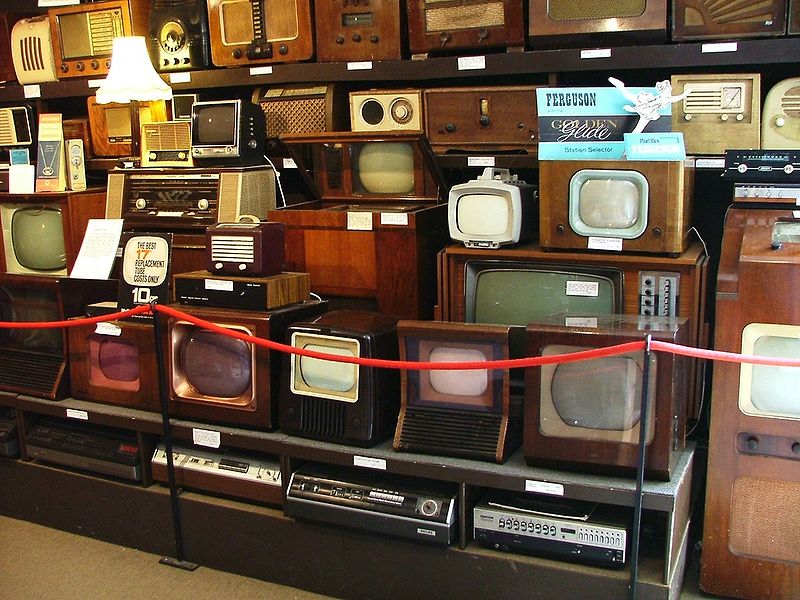The web TV revolution

Personally, I’m a picky adapter when it comes to embracing new technologies and making them a complete part of my everyday life. I can barely figure out how to send texts on my cell phone due to the fact that I almost never turn the thing on. At the same time, however, I am very much a fan of one particular change that is overtaking the world: The coming of the web TV generation. Considering how much I hate the way regular TV functions, it was only natural that I should be attracted to this new liberated format, and the world should look at embracing it as well, for web TV is the future.
There are many reasons to accept that all television will be looped through the Internet, and probably within the next 10 years. First of all, consumers get to watch the shows that they want to watch, when they want to watch them. No need to use TIVO or any other recording devices, no more having to be at home during a certain time period and being forced to miss your show should you be scheduled to work. Just log in, find your show and take your time viewing it. Need to get up and use the toilet or make a snack? Just pause it. No need to wait for a commercial any more.
Another reason that web TV will dominate is the simple fact that popularity of shows will be directly determinable by the number of computer-measured views and the “likes” and “dislikes” associated with the program - no more antiquated Nielsen ratings system that relies on a small sample group to provide statistics representing millions of people. Viewers will be able to see at a glance which shows are ranking the highest and thus make informed decisions. Programmers will be able to see which shows are going to be worth continuing and which they should probably let go.
One of the main reasons that I personally switched over to canceling my cable and using the Internet is the simple fact that I can, upon discovering a new show that I like, sit down and watch episode after episode in one go. Anyone who wants to can watch entire seasons in a night as long as the show is that far along in its run. No more watching one episode at a specific time and then flipping around the set trying to find something worthy enough to devour the next half-hour of your life. Read my lips (and words) - no more channel surfing!
Some may think that traditional TV will always have a place, but studies are already showing that this isn’t the case. A large portion of people in their 20s and below do not subscribe to cable networks, knowing that there are cheaper ways to get the programming they want. This report from the Miami Herald shows how prevalent the habit is and how much of a problem traditional TV networks are having trying to keep up with web TV. It’s really time for the old technologies to lie down and die and make room for better methods. It’s technological Darwinism, plain and simple.
As far as the future goes, I can only think optimistically about where this will take us. With instant feedback and reduced web production costs, anyone can make a show and air it, just like people already do with YouTube. It may also mean that programmers listen to the viewers and shape the shows they develop around real public opinion instead of representational couch potatoes. Perhaps we won’t, to put it bluntly, have a repeat of the Firefly cancellation incident.
Since the airwaves will no longer be monopolized by a select few elite with big money, we will no longer be at the mercy of a dozen or so networks that continuously hike their subscription prices while at the same time lengthening commercial interruptions so that they can raise their stock and line their pockets. Small niche channels will be everywhere, ensuring that large networks are consistently challenged by competition. This article from the Mirror shows that even some stars prefer to turn away from big networks. It tells the story of a former BBC TV chef who decided that the entertainment value of traditional television was overriding the educational value. Now she’s still doing a cooking show, but it’s online.
The death of the old television is upon us and it is important to embrace. We must cast down the old gods in favor of shiny new ones. We must give the common man a chance to shape what he watches. And everyone - I mean everyone - is getting on board with this. Intel is working on a web TV service that will be ready this year. Amazon and CBS are in bed together with their own projects. YouTube is creating an app to let their own channel feed directly into your TV. It’s everywhere!
The rising power of computers has changed music and print media already and television is the next logical step. Most of the youth are already on board and soon enough even the older generations will see the logic in it. There will still be a few hold-outs (like me with my cell phone), but that won’t change the pace of progress. And until rich folks figure out a way to control the Internet and resume power over what we watch, it will be a golden age of information and entertainment for all mankind.
Ancient TVs photo courtesy of Jeekc via Wikicommons

3 comments